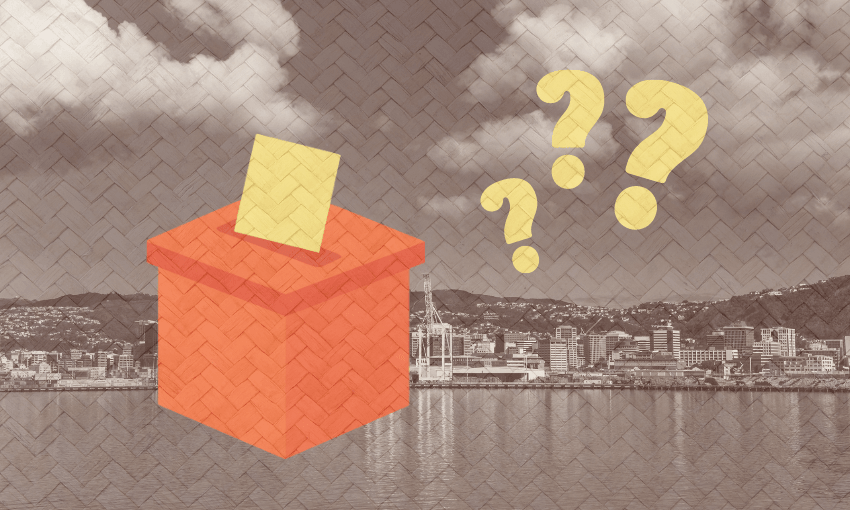A new law requires councils to hold referendums – at their own expense – if they want to keep their Māori wards. But what if they just… didn’t?
Wellington City Council last week joined dozens of councils around the country in a rebuke of the coalition government by voting to retain its Māori ward. Under a new law, the government requires councils that want to keep their Māori wards to hold a referendum at the next local election, at the council’s own expense. Wellington’s councillors voted 13-3 in favour of keeping the Māori ward, thereby triggering the referendum. Ray Chung, Tony Randle and Nicola Young were the three votes opposed.
In a short speech introducing the debate, Tory Whanau said, “I’m proud to be the first Māori mayor of Wellington, but getting here wasn’t easy. There was plenty of adversity along the way. I don’t want [Māori] representation to be reliant on chance. I want to make sure Māori always have a seat at the table, no matter who is in charge.”
Whanau added a series of amendments to the vote that didn’t fundamentally change anything, but served as an extra middle finger to the coalition government, including one noting that “the law requiring councils to hold a poll on Māori wards conflicts with council’s responsibility to uphold the wellbeing of their communities, especially Māori”.
Throughout last Thursday’s meeting, there were plenty of fighting words about defending localism and tino rangatiratanga, but how much weight do those words have?
Several councillors, including Nureddin Abdurahman, Rebecca Matthews and Iona Pannett, wanted the council to outright refuse to hold the referendum. “What’s the actual consequence for us breaking the law? What would happen?” asked Pannett. There aren’t any explicit provisions in the new law stating the consequences for not holding a referendum, it is just “required”. Council officers were vague in their response, saying it would “create a problem”.
The mayor’s staff told me after the meeting that their legal concerns related to the company the council contracts to run its elections, Electionz.com. According to their advice, the company could face consequences if it runs an election without including the legally required poll for a Māori ward. That justification seems a bit of a weak excuse – it’s hard to imagine a contractor would face consequences for not doing a job they weren’t hired to do. The council would bear the ultimate responsibility if it decided to breach the law.
Far North Council and Palmerston North City Council also debated refusing to hold a referendum. Friday was the final day for the 45 councils that established Māori wards without referendums to decide whether they wanted to keep or ditch them. Only two have voted to do away with theirs – Kaipara and Upper Hutt.
Whanau said she considered the idea of refusing a referendum but wanted to take a bipartisan line. “It’s much more important to me to have a unified way forward. I’m aware of my role as a Māori mayor, and in the week of te kīngi passing, I want it to be about unity, not to take a shot at the government. I’m happy to leave that for another day.”
Councillors on the left weren’t entirely satisfied with that. Some were gearing up for a fight. “The challenge is not to honour [te Tiriti] when it is easy, it is to honour it when it is more difficult,” said Rebecca Matthews.
Publicly refusing to hold a referendum is risky, but could have political upside for Whanau and the rest of the council’s left. It would set up a high-profile showdown against the government on one of the coalition’s least popular policies. A 1News Verian Poll last month showed 46% of voters think the government’s policies are increasing racial tensions in New Zealand, compared to just 10% who think tensions are reducing. The government’s approach to Māori issues might play well for a certain portion of Act and New Zealand First voters, but they are toxic to the median voter, especially in Wellington.
It might be the kind of stunt Whanau needs. If the 2025 mayoral election is a debate about rate increases, she will probably lose. If it’s about progressive social issues and conflict with a government that laid off thousands of people in the city, she stands a much better chance. Whanau would be the right person to take up that fight too: She’s a wahine Māori, Wellington is the largest council with a Māori ward, and it is the capital city and therefore has the attention of the political press.
There would be risks, of course. It would set up a strange constitutional showdown. There would be some kind of inevitable retaliation from the government. The mayor would find herself in the line of fire from the prime minister’s office. It would almost certainly kill any chance of a city deal. In the short term, it could hurt Wellington economically – it’s just a matter of whether voters blame the council or the government. In the long term though, it could end up being a positive thing for Wellington to flex its muscles and show that it won’t be pushed around by the whims of every passing minister. It could put the city on a path to…. dare I say it… self-determination.
It’s possible there is another reason the mayor backed down over the referendum. Councillors at Thursday’s meeting were extremely confident that Wellingtonians would vote to keep the Māori ward. If there is a turnout bump in 2025 from a Māori ward referendum, it will benefit Labour and the Greens. Left-leaning councillors could take a bold, principled and high-risk stand against the government to defend tino rangatiratanga – or they could do what they’re told, commission the referendum, and still probably get a slight benefit on election day.



